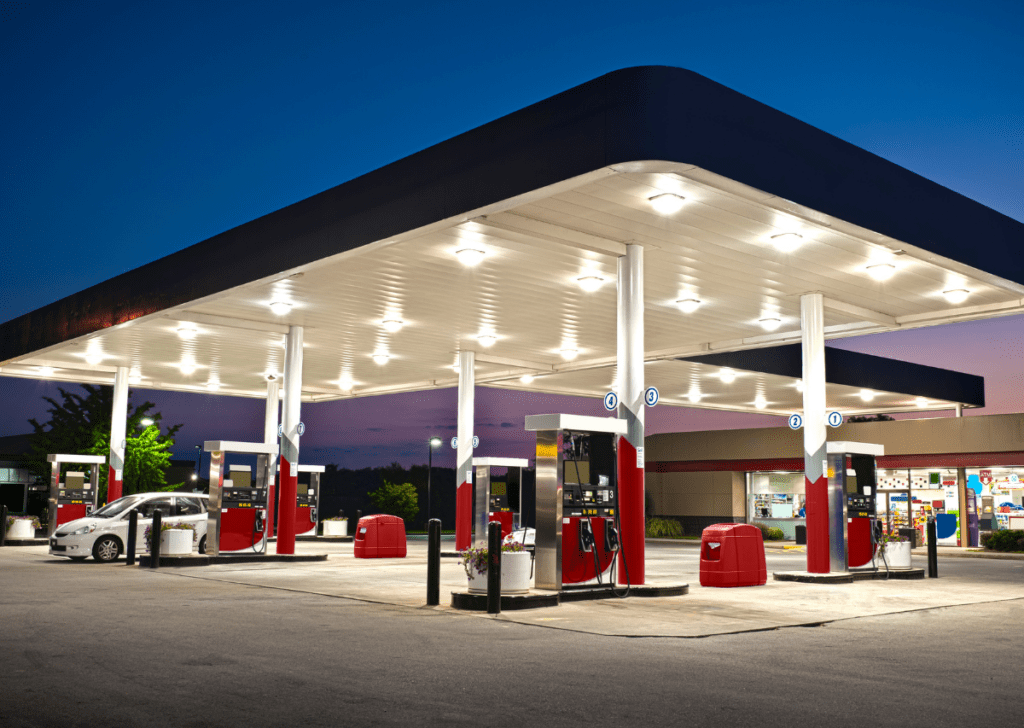
How Automated Smart Gas Stations Will Rule Future Forecourts?

Whether it’s an urban or rural landscape, gas stations have been a part of daily life for decades. Fuel stations are changing as EV cars gain acceptance in the 21st century, potentially ending the trend of traditional fuel stations. Smart gas stations bring this into action.
With automated smart gas stations, shoppers and fuelers have enjoyed more personalized and enjoyable shopping experiences in hypermarkets, big box stores, and convenience stores.
Petroleum retailers must revamp and transform their forecourt operations to fit new formats, products, and partners to stay competitive and stay on top of changing consumer behavior.
The automated smart gas station solution is setting the future stage for the forecourt. Let’s explore how it is changing the future.
Setting the Future of Forecourts: Ways Automated Smart Gas Stations are Transforming the future of forecourts
To advance customer engagement, marketing efficiency, and business capability, fuel station forecourts need to provide new offerings and value propositions:
Formatless forecourts are on the rise
With the shift away from petrol and toward cleaner energies, filling the wells does not have to dictate the design of the forecourt.
The forecourt layout, adding value-added services, and better catering for non-fueling customers can differentiate the customer experience. Members of loyalty programs could cover the entire ecosystem.
Smart payments
Consider an end to payment challenges, such as the delay in receiving handheld payment terminals, which are often damaged during all-day outdoor use and often have difficulties connecting to payment networks.
Consumers could be invited to link their debit or credit cards via automated payment technology once as part of an initial registration process and then be able to fill up the application whenever it is convenient for them.
Charging by electric means
New sources of biofuels and electric charging units will give us an alternative to gasoline and diesel pumps. With the move towards renewable energy, there will be solar panels, wind turbines, and other energy sources on the forecourt.
Also read- Benefits of Headless CMS
Autonomous cars go beyond energy
By introducing autonomous vehicles, service stations are poised to meet a wide range of life-simplifying needs, vehicle needs, and energy needs, allowing it to transform into a ” lifestyle-adapted destination ” No matter what market, format, or segment it is, it can be driven or un-driven.
Complementing or superseding existing business models
Electricity allows us to move from petrol to electricity without keeping everything in one place. As drivers go about their daily lives, retailers can set up electric car charging stations in parking lots in shopping centers and offices, airports, and residential areas to make life more convenient for them.
Technology sets like these can help reshape forecourt experiences. Bringing this all together may take time, but cloud-based software can make it possible.
Forecourt transformation journey
To differentiate their offerings and provide superior customer experiences, petroleum retailers are well-positioned to leverage digital disruption.
Sites in the future will offer significantly more than just a physical location. Extensions such as these can include homes, vehicles, microsites, and a virtual store, ensuring a seamless customer experience.
Implementing Mobile app technology
We have witnessed a revolution in how we fuel our cars with the help of mobile apps, making the experience easier, more convenient, and more stress-free for drivers. Let us consider the situation: You need gas right away, but you do not know where the closest gas station is, to say nothing of the cheapest gas station.
Smart gas station software solutions allow you to find the cheapest gas station nearby quickly and easily.
Besides saving you time and reducing stress, you can also find the cheapest fuel near you. Saving money on fuel costs is especially important to those on a budget.
In addition to offering extra amenities, these apps can help drivers find gas stations with electric charging stations and clean restrooms, making the fueling process more convenient and comfortable.
Smart pumps
Adding advanced technology to fueling, smart pumps go beyond self-service options. These pumps utilize sensors and algorithms to monitor fuel flow and optimize fueling processes. This technology can reduce spills and overfills, reducing the risk of environmental damage.
Pumps with smart technology reduce waste, which is good for the environment and human health. Fuel spills in soil and water can pose biological and environmental risks. As well as reducing waste, reducing fuel production and distribution costs can positively affect the economy. A lower fuel price can be achieved by passing these savings to consumers.
Disrupting forecourt services: Investing in the Future of gas stations
Customers expect fuel retailers to deliver dynamic, personalized engagement, adaptive offerings, innovative value propositions, swift service across the fleet, retail loyalty, and non-loyalty categories. Digitalization and innovative partnerships enable smart fuel retailers to disrupt their forecourt operations in a big way. A falling margin in traditional business models forces businesses to seek new revenue streams.
Given the impending changes in the automotive industry, gas stations may soon become obsolete. Maintaining customer expectations requires using the latest technological advancements, such as mobile, social, IoT, analytics, machine learning, cloud, social, and automation. Retail forecourt operations stand to benefit from digitalization and the key levers and technologies for major functional areas.
Creating smart gas stations is all about:
- Transforming it into an ” energy and service hub ” as fuels change
- By addressing the needs and expectations of connected customers,
- Creating a customer-centric forecourt environment to enhance the brand experience
Conclusion
By enabling future-ready fuel station automation stations, most petroleum retailers within five to ten years will be able to capitalize on new opportunities. As a result, the service offering will be expanded on many levels – from creating seamless customer experiences on a physical and virtual level to opening up new market segments.